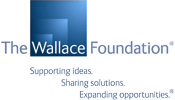So what do we do?
Susan, Jack and I are noting how the imposition of outgrown understandings of what "arts" and "arts education" mean hobbles the organic and natural expression that the arts always have been and continue to be--clearly in Jack's example of The Sims in the Hands of Artists experiment. The semantic trap seems to be just the tip of the real iceberg that we are grappling with. I don't think there is an easy solution even to the semantic trip--people in business have asked me if we can just stop using the word "art" because they stop listening. They then confessed they are not really interested in the word "creativity" either--they kind of glaze over--they like the word "innovation" because it is the product that they really care about, getting new business-ready products as a competitive advantage. No, I don't propose that we get into a language dance to please anyone.
In a comment on this blog Richard Kessler added a strong point: "These questions of definition occur partly because of the many ways in which arts and arts education takes place. You've got the disciplines, ever changing, lines blurring; you've got the originating versus interpretive, and of course, the combination of the two; you've got the professional versus the amateur; you've got discipline based or centered, versus integrated--both in a an educational framework, and more and more in how the arts are being created and performed by cross disciplinary artists. Not to mention youth development, in-school, after school, community-based, traditional versus non-traditional. It's a kaleidoscope, and you can find virtually all of the different kinds somewhere in some school and community setting."
So what do we do? Richard grounds my dream of our field ever coming to any kind of consensus about a deeper truth that contains our organic polarities that we can all get behind. The public has a limited definition that balkanizes and limits the range and value of arts and arts education? Michael and Edward and others point out that the action ground is local, and the remarkable example of Dallas and Big Thought provides a sense that movement is possible under their circumstance anyway. So what do we do?
About
Our Bloggers
Sam Hope, executive director, The National Office for Arts Accreditation (NOAA);
Jack Lew, Global University Relations Manager for Art Talent at EA;
Laura Zakaras, RAND;
James Cuno, Director, Art Institute of Chicago;
Richard Kessler, Executive Director, Center for Arts Education;
Eric Booth, Actor;
Midori, Violinist;
Bau Graves, Executive director, Old Town School of Folk Music;
Kiff Gallagher, Founder & CEO of the Music National Service Initiative and MusicianCorps
Bennett Reimer, Founder of the Center for the Study of Education and the Musical Experience, author of A Philosophy of Music Education;
Edward Pauly, the director of research and evaluation at The Wallace Foundation;
Moy Eng, Program Director of the Performing Arts Program at The William and Flora Hewlett Foundation;
John Rockwell, critic;
Susan Sclafani, Managing Director, Chartwell Education Group;
Jane Remer, Author, Educator, Researcher
Michael Hinojosa, General Superintendent, Dallas Independent School District
Peter Sellars, director
Contact us Click here to send us an email... more
Peter Sellars on Creativity & the Voice more

6 Comments
Leave a comment